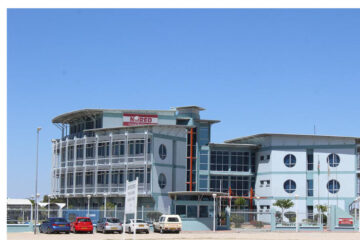In general, we tend to support the lawsuit by several companies challenging the government. The cherry-picking of existing national labour laws, will destroy their businesses. Other laws that could overlap this situation are being side-stepped. The precedent is frightening.
Others will credibly argue that the prevention of mass terminations and precipitously firing thousands of workers during a state of emergency is not a political agenda, but a national security consideration. At worst, it is a humanitarian imperative. The courts will have their hands full sorting the matter. Many are watching this ruling.
This decision could break the Namibian economy, either way it goes. King Solomon only had to decide between two women claiming to be the mother of a child. Our judges will have to decide if hundreds of businesses go bankrupt OR tens of thousands of workers lose their jobs now (instead of three months from now.)
Private sector businesses are being forced to temporarily subsidize workers because the government cannot afford to do so. They are shoved into doing this when it could force them into insolvency.
We are not lawyers (thank goodness) so allow us to use sophomoric logic.
A hotel with no rooms occupied; no banquets or meetings underway; no food being sold and no bar serving liquor is on the fast road to bankruptcy. Time is the determining factor. If there is no money coming in, then no bills can be paid, salaries included.
A construction company that is not building anything for the next 3-6 months, cannot pay its employees.
A clothing store with no customers for 1-6 months is no longer a viable business concern. You cannot pay a sales clerk to assist customers when there are none. You cannot pay a stock boy to unload trucks of goods when none are arriving.
We submit that the Ministry of Labour mishandled this entire situation. They were not proactive but reactive. It is as if the negative backlash for workers resulting from the state of emergency is a surprise to them. The Ministry should have been in communication with employers before the State of Emergency was announced.
Did that ministry ever consider that closing the borders meant (for example) no tourism revenue and no jobs for tourism employees? They needed to get statistics and loss projections. They should have started giving advice, proposing alternatives, and establishing rapport immediately.
Instead, the Labour Ministry is operating during this unprecedented national crisis with their usual, “workers-are-always-right; profit-seeking-owners-are-always-wrong” mind-set.
They sat back and let this workers’ plight explode. How does that serve the Namibian workforce?
All that said, we are not unmindful that there are business owners and executives out there that are quietly cheering the pandemic. They now have a built-in excuse to fire employees that have given no legitimate cause for dismissal. Boards and executives can blame the pandemic and clear the decks.
There are employers out there that could limp along towards better days with a 20 percent staff reduction. Now, however, they will implement a 40 percent reduction. Some of these companies were already in business trouble BEFORE the pandemic. They now see a solution they couldn’t dare use earlier.
They will surrender short term profits and hope that a longer-term cycle will show better annual figures with permanent down-sizing. They can blame it all on COVID-19. Shareholders are still angling for some level of dividends at the expense of the workers.
There are businesses cutting salaries by half (without written agreements with workers). And yet management expects the same hours/level of work.
This will sweep across Namibia. They can blame the poor products and bad service (yet increased prices) on the pandemic and get a free pass.
It was reported that an epic level of complaints have been made to the slow-moving labour ministry. We predict that number will rise even higher. Where is the Ministry’s plan to manage that nightmare?
This court case will be closely watched. Thousands of desperate businesses with no income (or severely reduced income) and yet have a consistent wage bill, are watching.
Hundreds of thousands of workers that want full pay while they do no work or (statistically quantified) less work, are watching.
The financially downtrodden Government, worried about immediate mass unemployment, angry demonstrations and hungry citizens, is watching.
Let us watch to see if the courts find an administrative ‘out’ of this doomsday decision rather than decide the merits of the issue.



